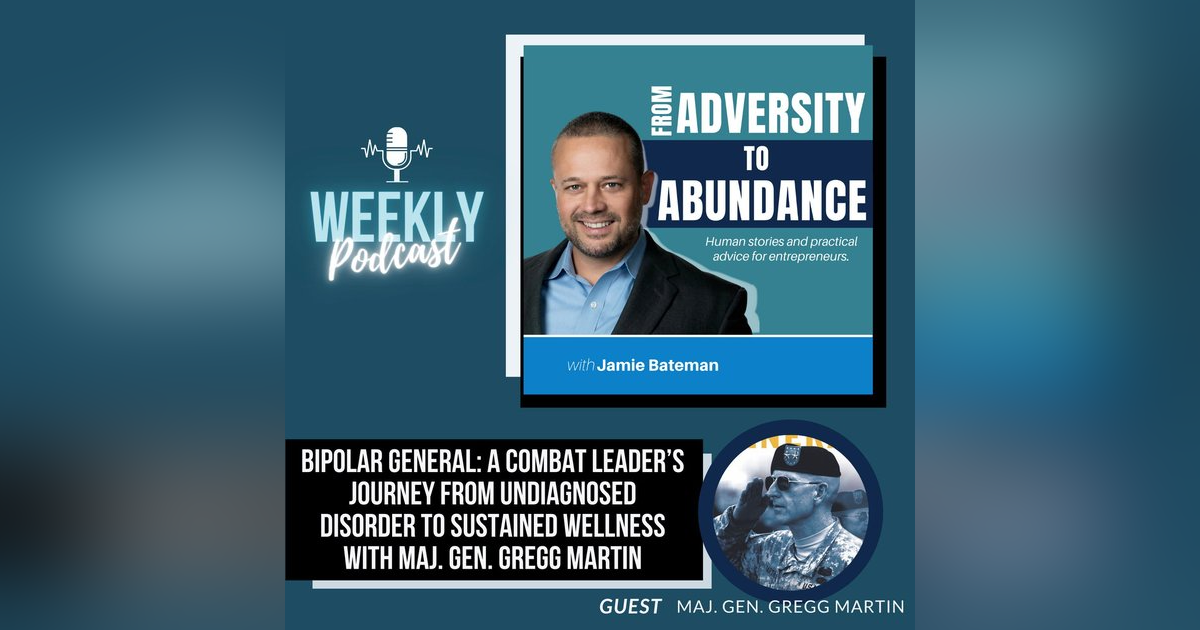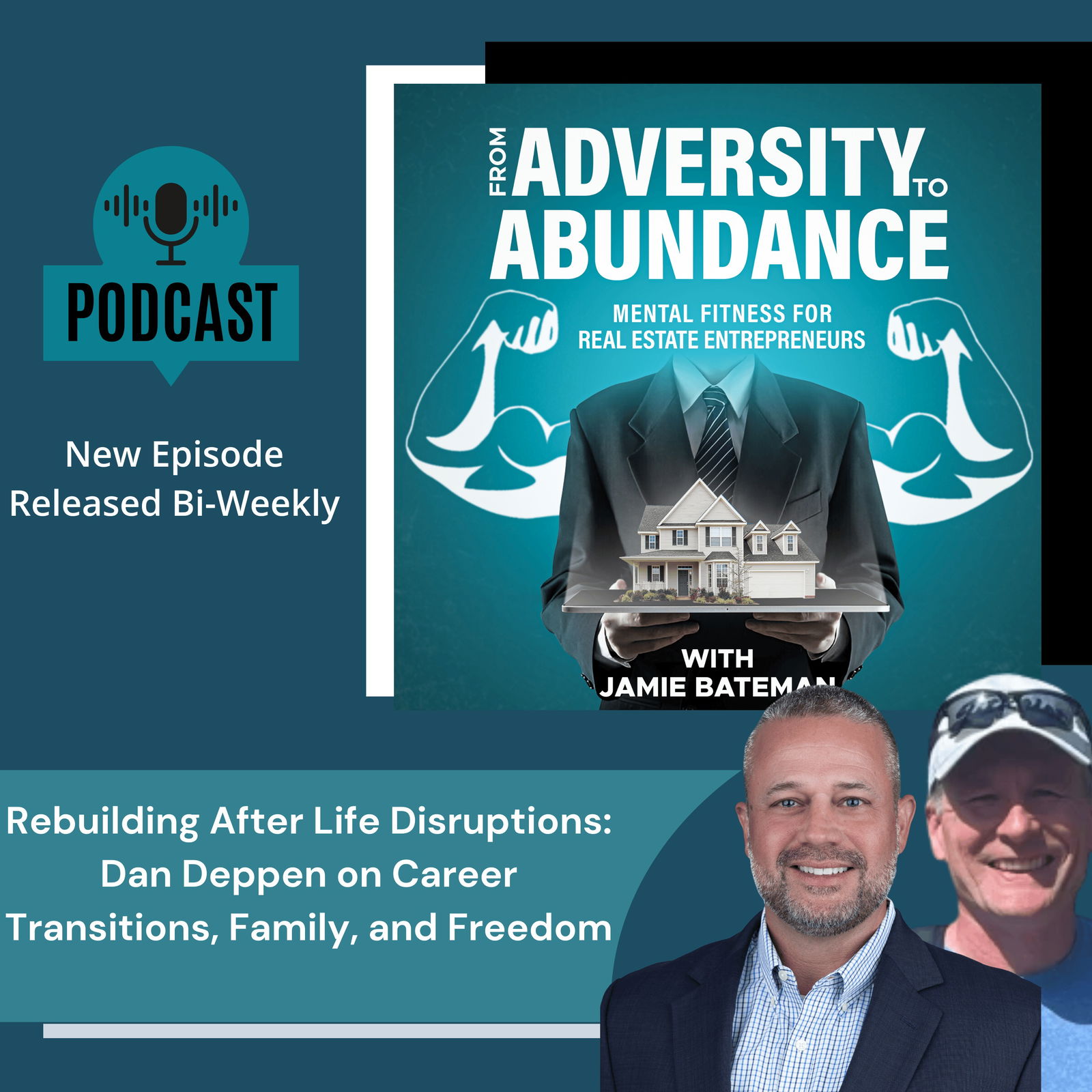Bipolar General: A Combat Leader’s Journey from Undiagnosed Disorder to Sustained Wellness with Maj. Gen. Gregg Martin


Join us on the From Adversity to Abundance podcast as we delve into the raw and inspiring journey of Gregg Martin, a retired two-star general battling bipolar disorder. Witness the highs and lows of his life, the resilience in the face of adversity, and the shocking twist that leaves him questioning everything. Will he find the strength to overcome? Don't miss this captivating episode that will leave you on the edge of your seat.
Meet Maj. Gen. Gregg Martin, a retired U.S. Army general with a doctorate degree under his belt. His remarkable military career spans three decades, with serving in the Iraq War as a Brigade Commander being one of his many notable accomplishments. Yet, beneath the outstanding accolades and distinguished duties, lies Gregg's brave fight with bipolar disorder. His powerful narrative offers a unique perspective on mental illness, providing valuable insight for those navigating their own mental health journeys.
"To really recover, you have to take attributes of healthy living and anchor them into the foundation of the five P's: people, purpose, place, perseverance, and presence."
Impact of Bipolar Disorder
Bipolar disorder significantly impacts an individual's life and can lead to periods of intense mania or debilitating depression. It's a chronic condition that requires lifelong management and support. The sharing of personal journeys, like Gregg Martin's, shine a light on the lived experience of bipolar disorder, bringing about much-needed awareness and understanding.
Books and Resources
Bipolar General: My Forever War with Mental Illness (Association of the United States Army)
A First-Rate Madness: Uncovering the Links Between Leadership and Mental Illness
Connect with Gregg Martin:
WEBSITE: www.bipolargeneral.com
LINKEDIN: https://www.linkedin.com/in/gregg-f-martin-222735aa/
Haven Financial:
https://www.myfinancialhaven.com/jamiebateman/
ATTENTION:
Unlock the secrets to a transformative life with “From Adversity to Abundance: Inspiring stories of Mental, Physical and Financial Transformation”. Buy your copy now and embark on a journey from challenges to triumphs!
AMAZON: https://www.amazon.com/dp/B0CGTWJY1D?ref_=pe_3052080_397514860
Connect with us
WEBSITE: https://www.adversity2abundance.com
Leave us a rating or review: https://www.adversity2abundance.com/reviews/new/ or here
Got comments, feedback or suggestions? We’d love to hear it! https://www.adversity2abundance.com/contact/
Follow From Adversity to Abundance Podcast
FACEBOOK: https://www.facebook.com/profile.php?id=100089126144055
INSTAGRAM: https://www.instagram.com/adversitytoabundancepodcast/
LINKEDIN: https://www.linkedin.com/company/89949391/admin/feed/posts/
YOUTUBE: https://www.youtube.com/@FromAdversity2AbundancePodcast
Connect with Jamie
BOOK: From Adversity to Abundance: Inspiring Stories of Mental, Physical, and Financial Transformation
LINKEDIN: https://www.linkedin.com/in/jamie-bateman-5359a811/
TWITTER: https://twitter.com/batemanjames





